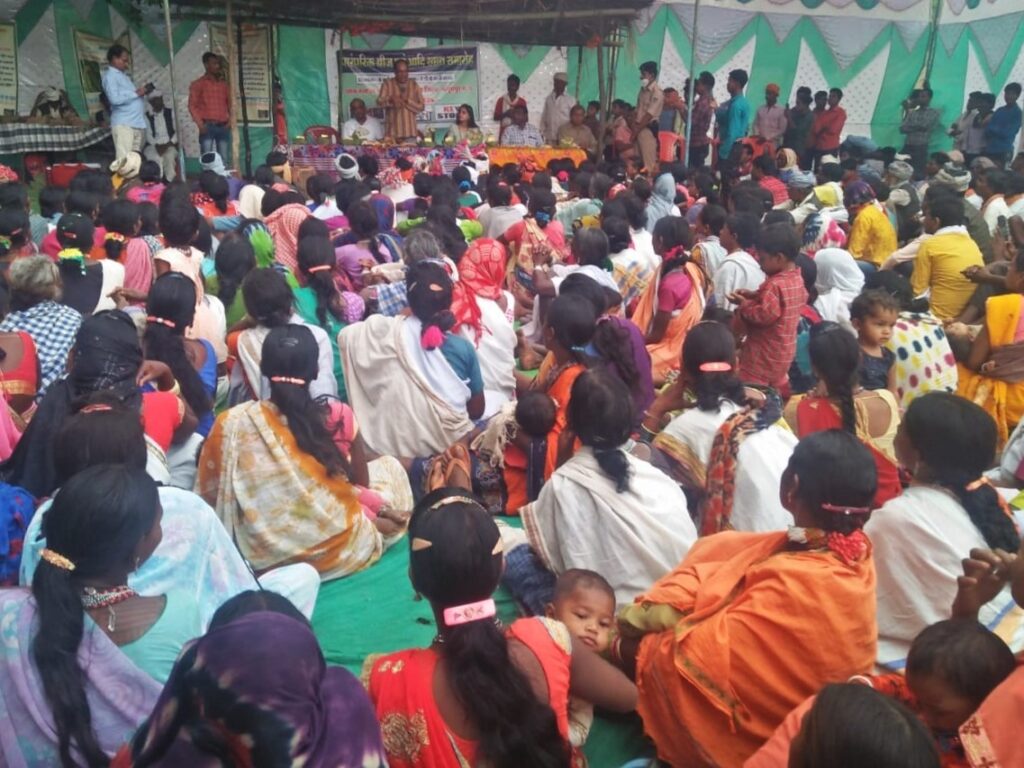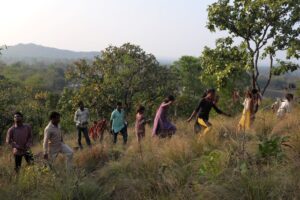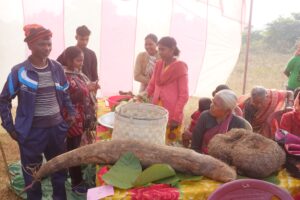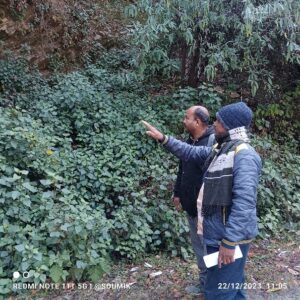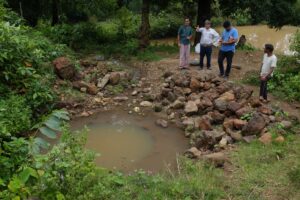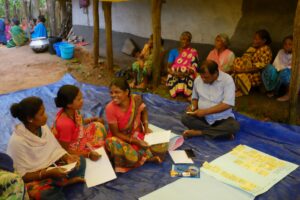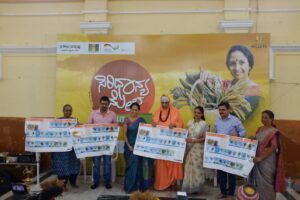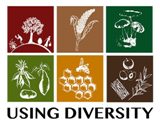Durgesh Prasad
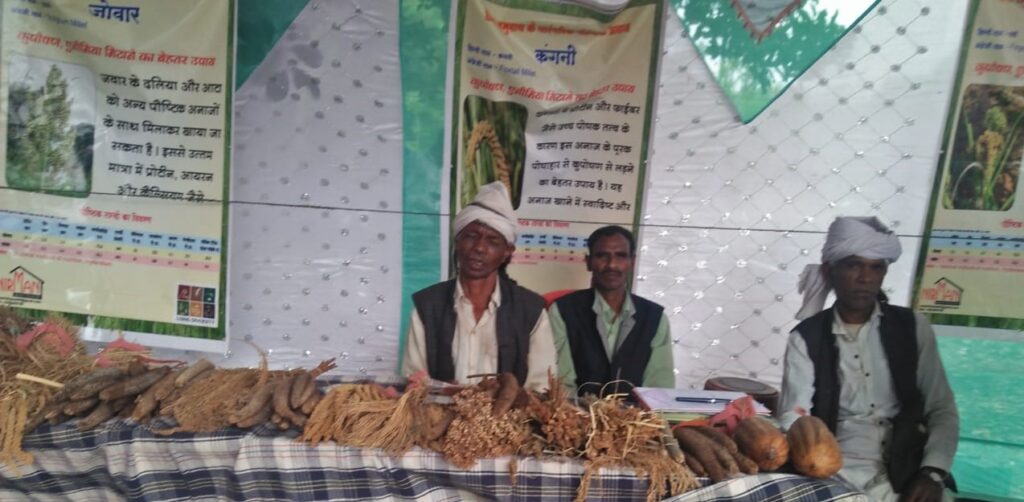
Millets like Kodo (Kodo millet) and Kutki (Little millet) are currently renowned through out the country and abroad. These millets have an abundance of special nutritional properties, they are gluten-free grains, and considered useful in combating diabetes, heart disorders, obesity, gas and other digestion related disorders. These characteristics are responsible for Kodo and Kutki being called super foods. However, Adivasi farmers in remote villages of the state grow Kodo and Kutki but do not consume them despite the fact that their women suffer from anemia, and their children are malnourished. In order to overcome anemia, the government is distributing iron and zinc fortified rice, while zinc, iron and other micronutrients are found in abundance in Kodo (Kodo millet), Kutki (Little millet), Mandia (Finger millet), Salhar (Pearl Millet), Sawa (Barnyard Millet), Kang (Foxtail millet) and Sikiya. The Baiga tribals of Anuppur district cultivate all these millets in their fields however they sell it in the market instead of consuming the crops themselves.
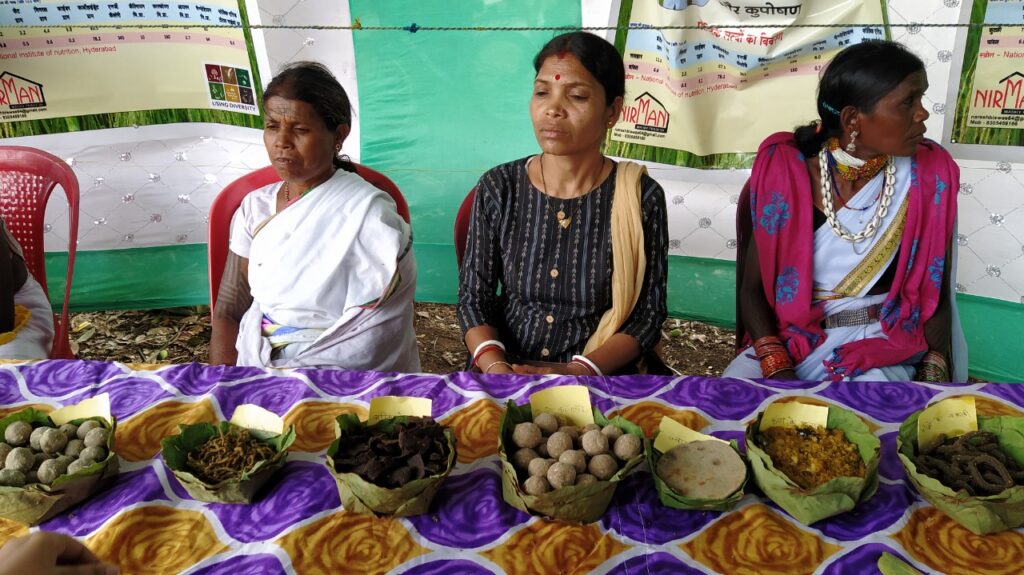
In order to increase the cultivation of Kodo, Kutki and other millets and to generate livelihood from them and to make delicious food for the children and the new generation, “Kodan Recipe Training” was conducted by Nirman (Using Diversity Partner). In this training program the participants were taught to prepare a variety of dishes using Kodo (Kodo millet), Kutki (Little millet), Mandia (Finger millet), Salhar (Pearl Millet), Sawa (Barnyard Millet), Kang (Foxtail millet) and Sikiya. In this training, 15 women from nearby villages were taught to prepare various dishes including Khichdi, Delicious Kheer, Laddu, Chakli, Sev, Bade, Pakora from Kodo, Kutki, Mandia and other millets. This was aimed at enabling the women to earn an additional livelihood by selling these items in the local market.
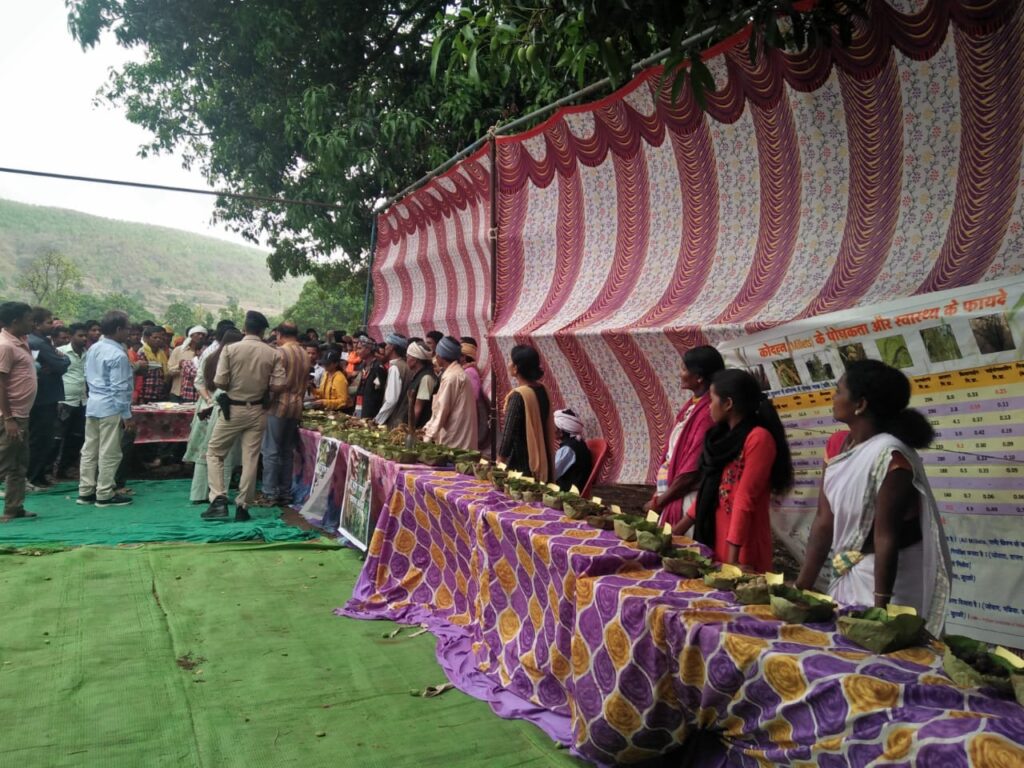
Building on the training program on the 4th of May 2022, a “Traditional Seed and Uncultivated Food Fair” was organized in Tanaja village , Rajendragram. In this event, the dishes prepared in the training were displayed and distributed to the people. Alongside an exhibition of forest produce consumed by the Baiga community were on display and this included a variety of tubers like Kanhi kanda, Bechandi kanda, fruits like Tendu, Char and green leafy vegetables like Kakai bhaji, koilar bhaji and Pakri bhaji. Along with this, traditional seeds like Kodo, Kutki, Sawa, Salhar, Jowar, Maize, Ramtila, Mandia etc. were displayed.
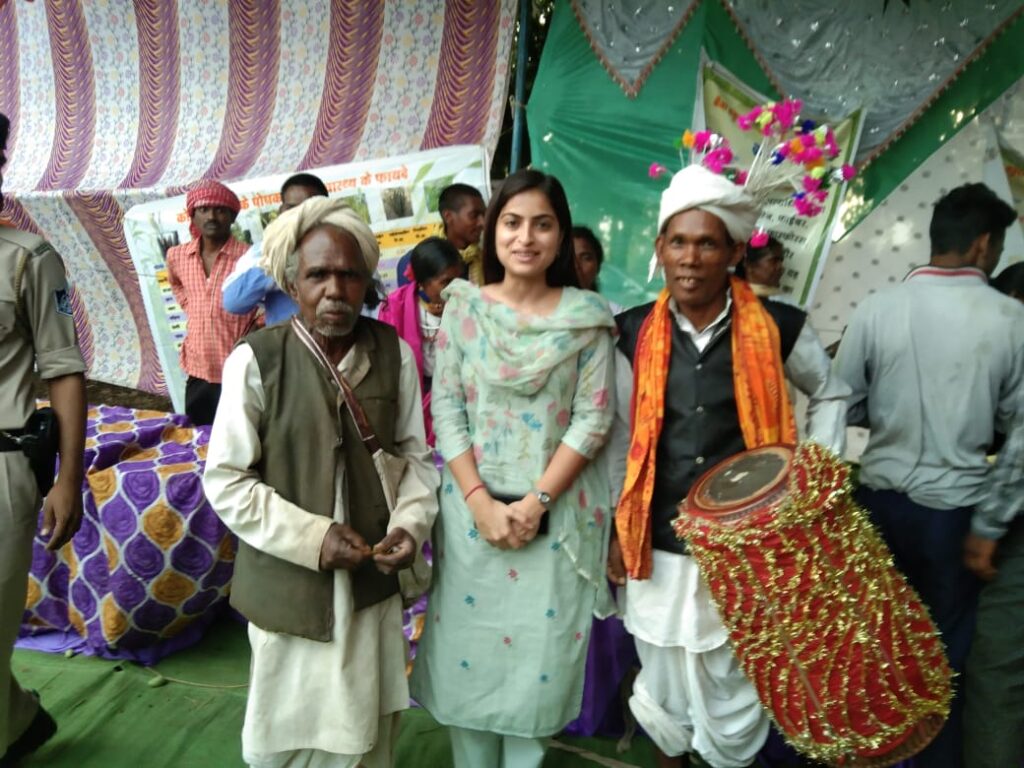
Anuppur District Collector Ms. Sonia Meena and senior officers of Agriculture Department were present in this event. The event was organized in Anuppur district by Nirman and the Using Diversity Network, which is working for conservation of traditional seeds and biodiversity. Addressing the event, Naresh Biswas, a member of the Habitat Rights Expert Committee of the Government of India and the head of Nirman, told the people in detail about the nutritional properties and importance of different millets including Kodo, Kutki like Sawa, Salhar, Mandia etc. He said that in the Forest Rights Act, there is a special provision of habitat rights for the Baiga tribal, a Particularly Vulnerable Tribal Group (PVTG) residing in the district. Giving information about the Habitat Right, he said that only the Baiga tribals of Dindori and Mandla district have got this right. He requested the collector to take action to give Habitat Rights to the Baiga tribals of Anuppur district as well.
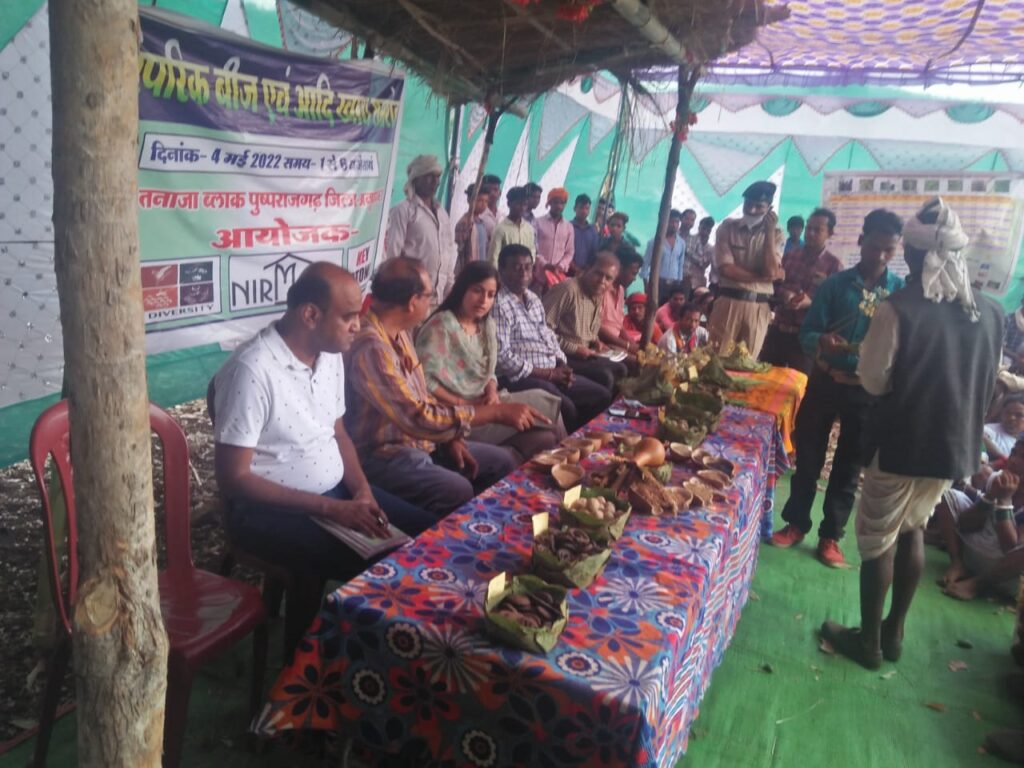
Anuppur District Collector Ms. Sonia Meena has assured to start the process of Habitat Rights in the district. Collector Madam took information from Baiga tribals present in the event about their problems, challenges and schemes being operated in their villages. After receiving information about the organic methods of cultivation of Kodo, Kutki and other millets by the Baiga people, while sharing information about the schemes run by the Department of Agriculture, she said that people are doing organic farming here and should be encouraged to expand and increase their efforts further.
She provided information about the farm pond schemes under MGNREGA schemes. All the Baiga women present in the program expressed their ignorance when asked whether they were getting access to diet plan/scheme and pension scheme. She told the people of 13 villages to provide information and comlaints about pension schemes to Durgesh Prasad, then they will try to solve the problems soon. She inquired about the presence of Patwari in the village and shared that in future we will also bring revenue officers along with him in such programs.
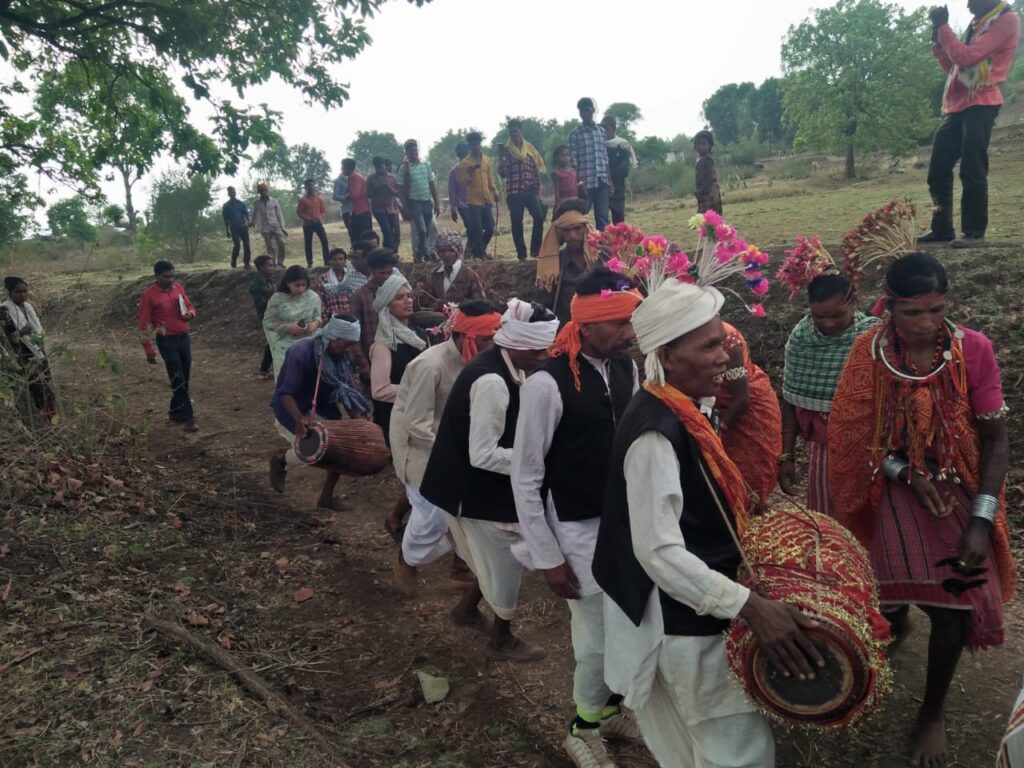
The people of Tanaja village were very happy to receive the District Collector in the village for the first time. The Baigas welcomed the Collector with their traditional folk dances. Seeing the exhibition of indigenous and traditional seeds, an agricultural officer was repeatedly asking if their were Ragi seeds on display but Baiga said there were no Ragi seeds despite there being two varieties of Ragi on display. Ragi is called Madiya in the Baiga language. What was surprising for those present was that Baiga people do not know the Hindi name and officials do not know Baiga name. In this event, Assistant Director of Agriculture Department Shri N.D. All the employees including Gupta, Mathur Sir, head of the livelihood program of Indira Gandhi National Tribal Vishwavidyalaya were present. About 500 people from 13 villages were present in the program. The representatives of Nirman Durgesh Prasad, Harilal Baiga, Hiralal Sarote played a vital role in ensuring the successful organization of the program.

